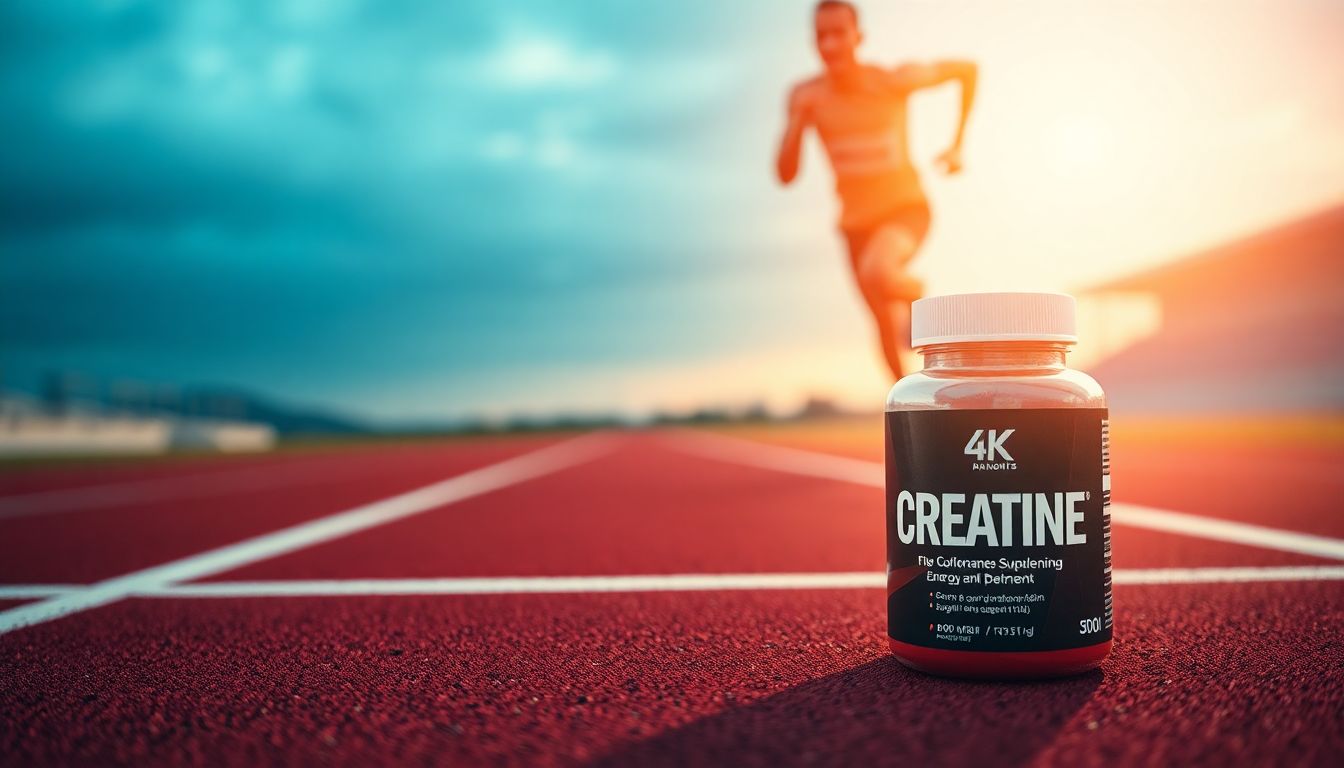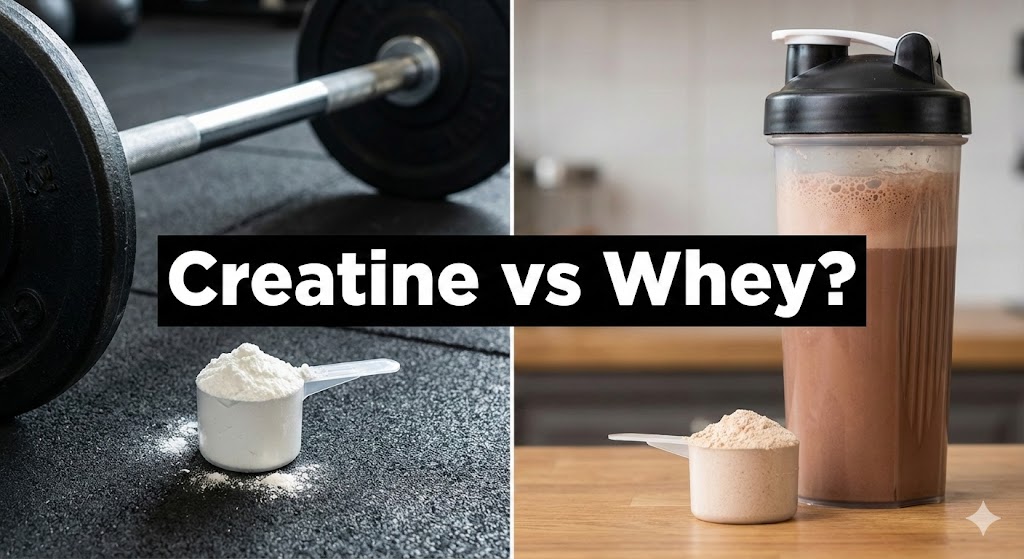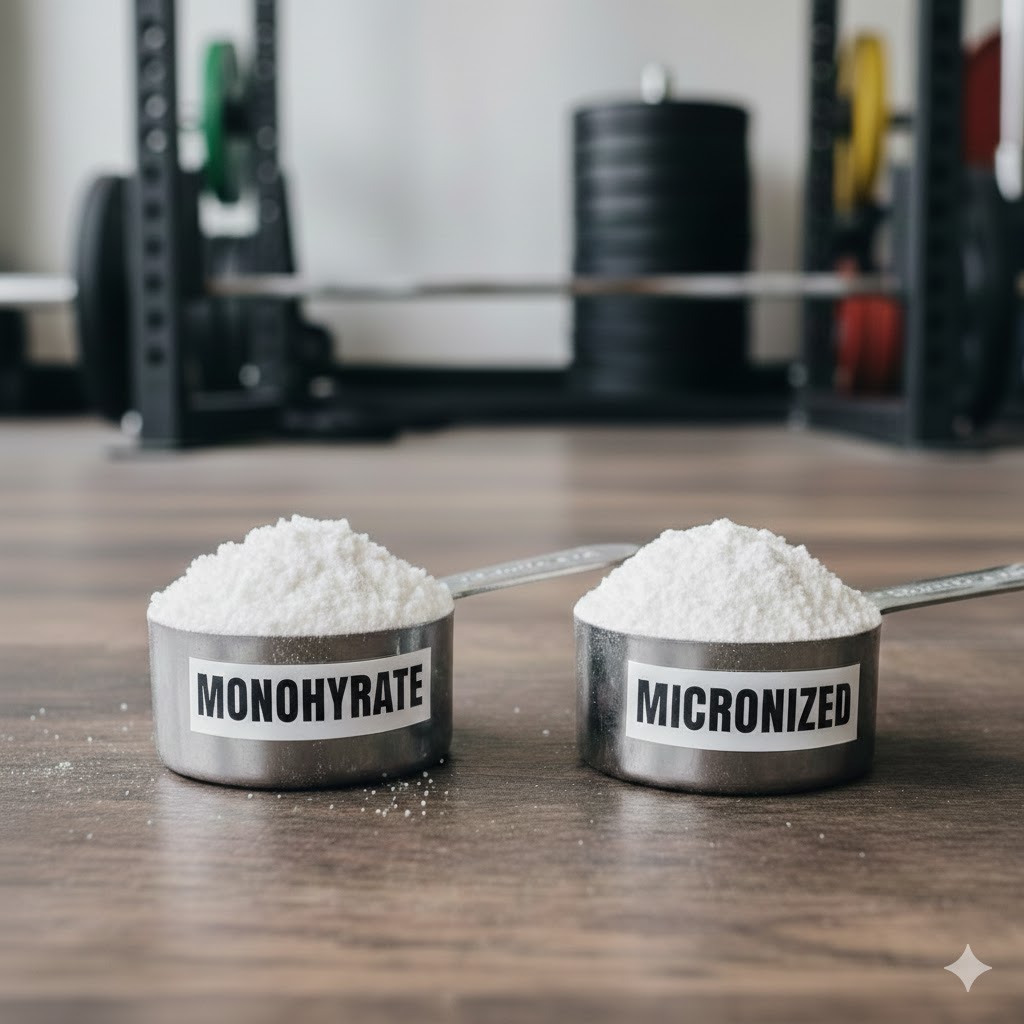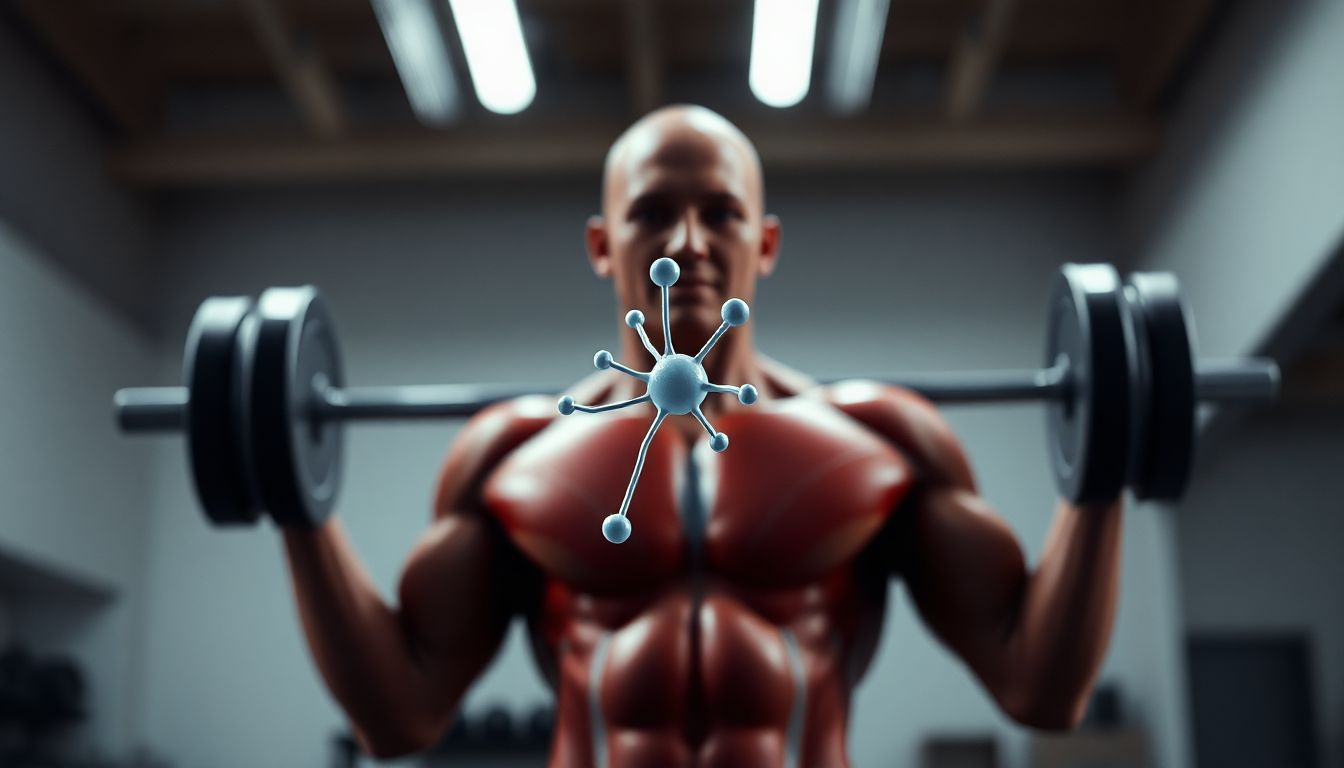Athletes and fitness enthusiasts widely use creatine supplements to improve athletic performance. Backed by decades of research, creatine enhances multiple facets of physical performance, from strength and power output to endurance and recovery. This article explores the scientific mechanisms behind creatine’s ergogenic effects and the evidence supporting its role in athletic excellence.
How Creatine Works to Enhance Performance
Creatine works primarily by increasing phosphocreatine (PCr) stores in skeletal muscle cells. PCr acts as a rapid reserve of phosphate groups necessary to regenerate adenosine triphosphate (ATP), the primary molecule that provides energy for muscle contractions during high-intensity exercise. By elevating muscle creatine content through supplementation, athletes can:[1][2]
- Increase non-oxidative energy capacity for short bursts of intense effort
- Accelerate phosphocreatine resynthesis during recovery periods between exercise bouts
- Improve energy transport within muscle fibers, aiding mitochondrial ATP supply and utilization[3]
Key Mechanisms Influencing Athletic Performance
1. Enhanced High-Intensity Work Capacity
Supplementing creatine enables more work to be performed during repeated bouts of high-intensity exercise, such as sprints and heavy lifting, by maintaining ATP availability. This can delay fatigue and improve power output during critical moments in competition.[4][5]
2. Improved Recovery and Reduced Neuromuscular Fatigue
Creatine supplementation accelerates PCr resynthesis between exercise bouts, promoting faster recovery. It may also enhance calcium handling in muscle cells, supporting more efficient muscle contractions and reduced neuromuscular fatigue.[6][7]
3. Increased Glycogen Storage
Some research shows that creatine can increase muscle glycogen content, which fuels prolonged, strenuous efforts in endurance sports. This effect may complement carbohydrate intake and enhance overall energy availability.[8]
4. Buffering Capacity and Blood Lactate Reduction
Creatine can improve intracellular buffering, reducing hydrogen ions produced during anaerobic glycolysis. This may lead to lower blood lactate accumulation and less acidosis, which helps sustain high-intensity efforts.
Evidence from Athletic Studies
A multitude of studies supports creatine’s efficacy in enhancing athletic performance across various sports and disciplines:
- Supplementation improves repeated sprint performance and peak power in team sports like soccer and basketball.
- Short-term creatine supplementation boosts anaerobic exercise capacity without compromising endurance in triathletes.
- Swimmers receiving creatine displayed improved sprint times in competition, supporting enhanced speed endurance.
Practical Recommendations for Athletes
- Loading phase: 20 g/day for 5-7 days can rapidly saturate muscle creatine stores, followed by a maintenance dose of 3-5 g/day.
- Timing: While timing is flexible, post-exercise consumption with carbohydrates may enhance uptake.
- Hydration: Adequate fluid intake is important to support creatine’s cell volumizing effects.
- Safety: Creatine is safe for healthy athletes when taken at recommended doses over extended periods.
Frequently Asked Questions (FAQs)
1. How does creatine improve sprint performance?
By replenishing ATP quickly during short bursts, creatine helps sustain maximal effort during sprints. Read More
2. Is creatine beneficial for endurance athletes?
Yes, creatine may improve glycogen storage and repeated high-intensity efforts in endurance performance. Read More
3. Can creatine reduce muscle fatigue during competition?
Creatine helps reduce neuromuscular fatigue by supporting calcium cycling and ATP resynthesis. Read More
4. How long does it take to see performance benefits?
Athletes often notice improvements within 1 to 2 weeks of creatine supplementation. Read More
5. Are there any risks for athletes using creatine?
Creatine is safe when used correctly and does not adversely affect kidney function in healthy individuals. Read More
Here are 5 additional FAQ entries you can add to your article “Creatine and Athletic Performance: The Science Explained,” maintaining the same format:
6. Does creatine improve repeated high-intensity efforts?
Yes, creatine enhances performance during repeated short bursts of maximal effort, common in team sports. Read More
7. Can creatine aid recovery from injury or muscle disuse?
Creatine supplementation may help reduce muscle loss and speed recovery during periods of immobilization or inactivity. Read More
8. Is creatine effective for athletes in endurance sports?
Creatine may improve glycogen storage and performance during repeated high-intensity efforts within endurance events. Read More
9. Does creatine supplementation increase body weight?
Creatine often causes a 1–2 kg increase in body mass during loading, mostly from increased water retention in muscles. Read More
10. Are creatine benefits consistent across all sports?
Creatine mainly benefits sports requiring brief, high-intensity efforts, with less clear effects on continuous endurance activities. Read More
Related Articles
- What Is Creatine?
- Creatine and Muscle Growth
- Top 10 Benefits of Creatine
- Creatine Safety and Side Effects

Elevate Your Athletic Performance
Now that you understand the science behind creatine’s performance benefits, experience these advantages with Creatine Ultimate CRN-5.











